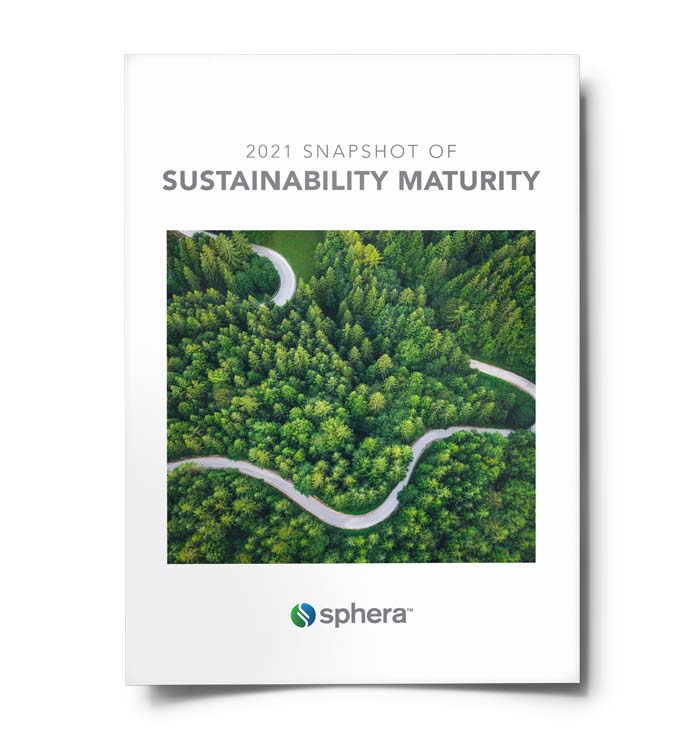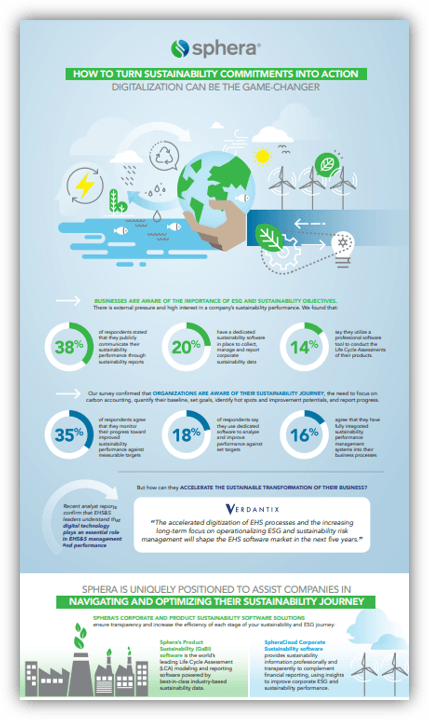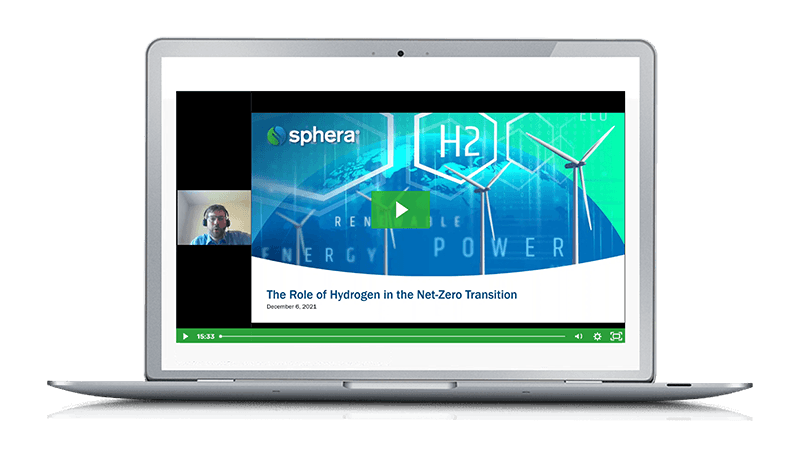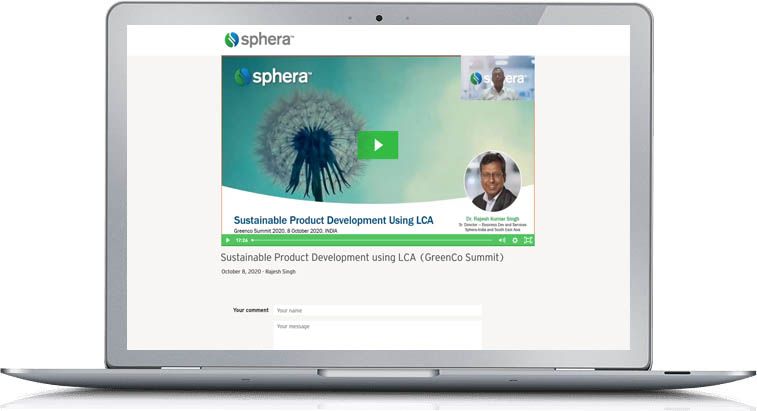The ecological pillar of sustainability is becoming more and more important. Companies are now engaging in sustainability activities more readily because the mindset of their stakeholders has shifted.
Satisfying those stakeholders, complying with governmental or market regulations, improving economic outcomes and contributing to environmental protection are some of the drivers for their increased sustainability activities. However, a lot of companies struggle to adapt to the new situation despite sustainability bringing many new opportunities.
We at Sphera believe it is important to show companies the opportunities sustainability presents. To this end we conducted research with a couple of leading questions: How can companies gain value from sustainability? How do companies use the opportunities sustainability presents? One part of our research was a survey in which more than 400 clients and industry experts participated.
What Is Value in Terms of Sustainability?
The definition of value may differ from company to company. We found that value is closely aligned with a company’s sustainability maturity. Value increases for the participants in this study the more mature a company is in their sustainability efforts. Our results show that there are four major phases of value.

In the following section we will explain the different value phases in detail to show you what you can gain out of your sustainability efforts.
Mitigate Risks
Companies in this phase want to be more compliant with regulations. Sustainability isn’t a high priority in their business. However, they are compliant to governmental and market regulations. Value for these companies means risk mitigation.
Satisfy Stakeholder Expectations
At this stage, stakeholders are becoming more sensitive to sustainability. They want to know about the sustainability performance of their business partners. Value is seen as the satisfaction of stakeholder expectations. Most companies master that task with sustainability reports. Most (91%) of our participants stated that they publish their CO2-emissions, and 70% of them create an annual sustainability report (according to the Carbon Disclosure Project [CDP] or Global Reporting Initiative [GRI] guidelines). This is also the phase in which most companies in this study are right now. That means most of the companies have a lot of value they can still add through their sustainability efforts.

Gain Competitive Advantage
These companies already see sustainability as a key function of their business. They differentiate themselves through sustainability and thereby gain competitive advantages. Less than a quarter (21%) of the participants benchmark to see where they can improve and differentiate their businesses. In addition to competitive advantages, companies in this phase are also achieving the first significant financial benefits from their sustainability activities, such as through cost savings. Of course, such companies also have to invest more in sustainability in order to drive the additional value from it.
Improve Economic Performance
These are the sustainability front-runners. For these companies, sustainability is their business and their unique selling proposition (USP). Cost savings, revenue improvement, a green image and competitive advantage are among the benefits they get out of sustainability. They have holistic sustainability strategies and portfolios. They also expect their suppliers to be sustainable. Companies in this phase are the businesses of tomorrow because they shape the way companies will have to do business in order to be successful in the future.

Conclusions
The more you engage in sustainability, the more value you gain from it. Right now, most companies in this study are in the “Satisfy Stakeholder Expectations” phase. So, a key finding of our research is that most companies are missing out on a lot of opportunities for value generation.
Sustainability directs a company toward a bright future. Through sustainability efforts, entrepreneurs, CEOs and other business professionals can set up or adjust a company to significantly improve its economic performance and the long-term chances of its success. So the main takeaway is to invest and engage more in sustainability to your business’s ultimate advantage.










